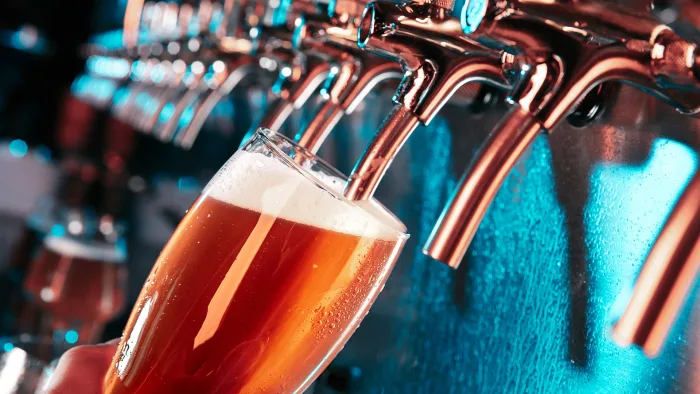Another Brewing Icon: Popular Brewery Files for Chapter 11 Bankruptcy
According to The Street, The craft beer movement has seen explosive growth over the past decade, with a remarkable increase in the number of breweries and taprooms across the United States. According to the Brewers Association, the number of craft brewers jumped from approximately 4,803 in 2015 to around 9,761 in 2023. However, this growth has been accompanied by a troubling rise in business closures within the industry.
A Growing Concern: Brewery Closures
Between 2016 and 2023, craft brewery closings surged from 97 to 418, totaling about 2,036 closures over the eight-year period. Many of these closures were linked to bankruptcy filings, with breweries often resorting to Chapter 7 or Chapter 11 to reorganize or liquidate their operations.
This year alone, several notable craft breweries have filed for bankruptcy. Roth Brewing Co. of Raleigh, North Carolina, opted for Chapter 11 in March, aiming to reorganize its business. Similarly, Harrisburg, Pennsylvania’s SpringGate Vineyard, owned by Schoffstall Farm, sought Chapter 11 protection to restructure its financial obligations.
In Milwaukee, Company Brewing ceased operations after owner George Bregar filed for Chapter 7 bankruptcy liquidation on May 31, selling off remaining inventory online. Another Florida brewery, Zydeco Brew Works in Ybor City, filed for Chapter 11 in January, closing its main brewery and restaurant location in Tampa. Tampa-based King State also filed for Chapter 11 in February, citing financial distress due to disruptions caused by city infrastructure work.
Unconventional Causes of Bankruptcy
Not all bankruptcy filings stem from financial distress; some arise from less conventional circumstances. A striking example is Griffin Claw Brewing Co., which filed for Chapter 11 bankruptcy protection on July 26. Interestingly, the brewery is not facing any financial hardships; instead, the filing was a strategic move to navigate a partnership dispute among its owners.
Co-owner Scott LePage clarified that Griffin Claw is a profitable company, stating, “We’ve always been profitable. It’s just that we got put into this position, and ownership can’t agree.” Despite the filing, LePage assured customers that operations at their Birmingham and Rochester Hills, Michigan locations would continue as normal. “Nothing’s changing. We’re open, the patios are busy, and we’re ready for a good Friday night,” he added, emphasizing that employees and vendors would continue to be paid.
Also read: Retail Icon Files for Bankruptcy: Insights on the Liquidation of a Former Trendsetter
A Legacy in Limbo
Griffin Claw Brewing was established in 2011 by Scott LePage’s father, Norman, and his partner Ray Nicholson. Following Nicholson’s passing in 2019, a dispute arose between the LePage family and Nicholson’s heirs regarding the financial arrangements from the sale of Clubhouse BFD, which was rebranded as Griffin Claw Brewing.
The brewery is known for its diverse offerings, including 18 different brews, such as the award-winning Norm’s Raggedy IPA. In addition to beer, Griffin Claw distills its own spirits, including vodka, bourbon, whiskey, gin, and rum. Notably, the LePage family also owns the Lumen Detroit restaurant in Beacon Park, which is not part of the bankruptcy filing.
Conclusion
The craft beer industry faces a dual narrative of growth and challenge. While the increase in breweries has enriched the beer landscape, rising closures highlight the industry’s volatility. As breweries navigate these turbulent waters, the future of many remains uncertain, underscoring the need for adaptability and strategic planning in a rapidly evolving market.






